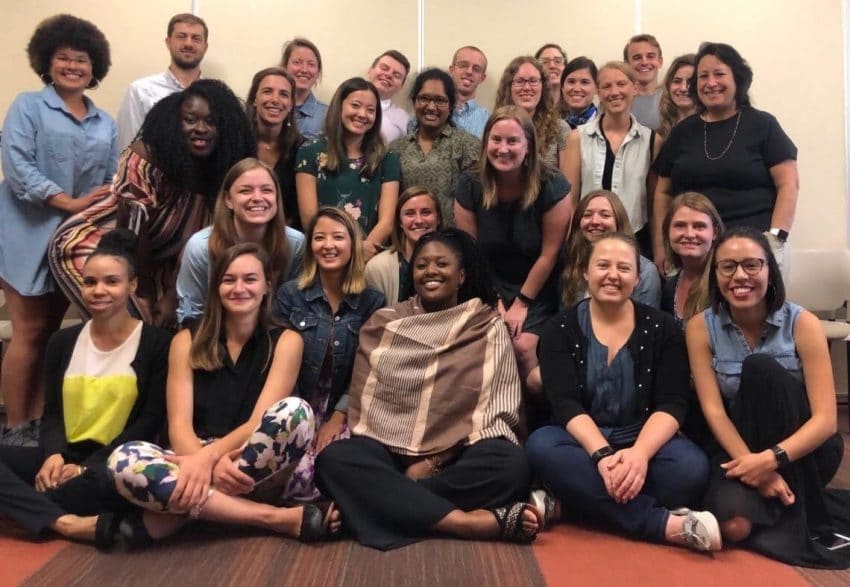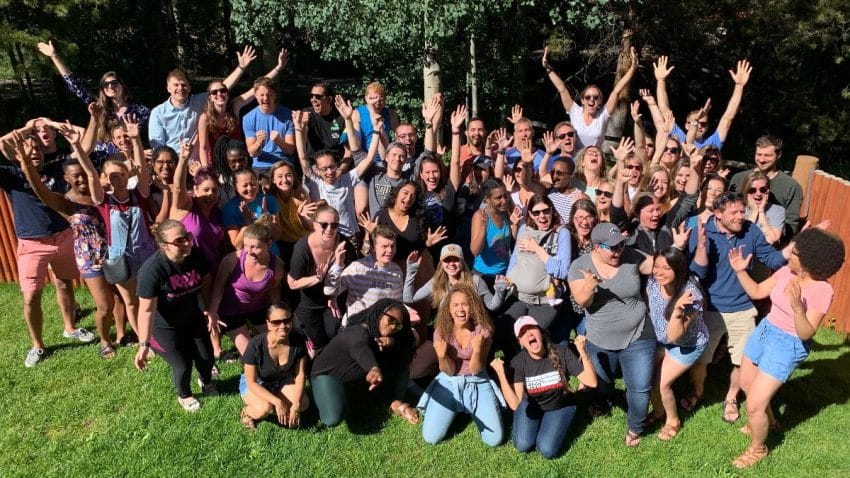
The Urban Leaders Fellowship (ULF) is a 7-week summer fellowship for early- to mid-career professionals who want to take an active role in changing their communities for the better. Fellows split their time between working with an elected official and partnering with community organizations all over the country. Thus, the program gives fellows a well-rounded understanding of both the formation of policy and its implementation. Fellows get to practice the most effective methods of leadership as they work to help communities through government and hands-on experience. A stipend of $2,500 is provided.
We talked to Ted Delicath, a current Urban Leaders Fellow in Denver, Colorado, to learn more about the program and get some application tips.
1. What inspired you to apply for the Urban Leaders Fellowship?
As a transitioning service member, I sought an avenue where I could test the applicability of my military skillset in the civilian sector. The Urban Leaders Fellowship (ULF) offered me two avenues to do such that: ULF commits to exploring how change occurs through both on-the-ground experiences in partner organizations committed to specific causes and through policy initiatives with elected or appointed representatives.
Working on two substantive summer projects in addition to the personal and professional ULF training offered me the challenge, growth, and network necessary to successfully transition and validate military skillset in the civilian sector. In the morning I worked with Rocky Mountain Microfinance Institute (RMMFI) to hone their theory of change and build a model that showcased their social return on investment. Like many smaller nonprofits, RMMFI was already creating change at the local level, they just needed my help in supporting this narrative through data. In the afternoon, I worked with Colorado State Representative Leslie Herod on crafting a policy aimed at reducing the recidivism rate in Colorado. The privilege of my position afforded me insight into the intricacies of the public policymaking process. It also offered our team the opportunity to pitch our policy to Rep. Herod and senior-level staff at the Colorado Department of correction. Both parties plan to carry our work forward into the 2020 legislative session.
2. What have been some of the most eye-opening moments during your fellowship?
ULF opens fellows’ eyes because of the diversity of perspectives it assembles. In 2019, UFL had 125 fellows throughout 9 regions nationwide. Of those fellows, 65% were females, 60% identified as people of color, and 38% identified as coming from low-income backgrounds.
In my cohort alone, of the 26 fellows, only four were men, and of the 22 women, over half identified with a minority group. During any given group-wide discussion, these 26 filters cascaded a spectrum of viewpoints in front of me. Humbled by the breadth and depth of these outlooks, ULF reminded me that the complexity inherent in any change we seek comes from the diversity of America. Faced with such complexity, the zeitgeist of our day scares us into simplifying our outlook into comfortable binaries. With no time for small-minded comfort, ULF instead challenges fellows to ask whose voices are lost in the process of reduction? The Urban Leaders Fellowship then asks us to run toward those voices, hear them, and be bold enough to represent their voices in the change we seek.
The day-to-day: You will work at a partner organization in the morning and come together with your cohort for programming in the afternoon. Programming consists of policy work time, professional training (policy writing seminars, presentation refinement, etc.), motivational speakers who are leaders in the community and region, and personal training (“theory of change”, “story of self”, etc.). Don’t’ blink because seven weeks will have passed when you open your eyes (hyperbole, kind of).

3. What tips would you give others applying to the Urban Leaders Fellowship?
The ULF application process stands out to me because it actually means what it says and says what it means: it desires applicants who are clear on their values, generally understand what they want from the fellowship, and can see how they’ll use their experience in the future. Don’t mistake that as a certainty, for few, if any, fellows are certain about the world. In fact, humility, uncertainty, and genuine inquiry are common traits of everyone in my cohort. Thus, in the interview, don’t seek to be anything you’re not. The program has no time for posturing or unnecessary polish.
As for the practical exercise, write thoughtfully and succinctly. Be prepared to back up your opinions in the interview and to explain your thought process. Again, the goal isn’t certitude; it’s to uncover how you communicate your convictions and how you make room for the convictions of others.
Ted Delicath grew up in the midwest in a single-parent household and credits his mother Momma D with cultivating anything worthwhile in his character, outlook, and passion to serve. Ted’s thankful for his collegiate experience at Illinois Wesleyan University where he graduated from in 2013. After graduating, Ted took part in the CORO Fellows Program in Public Affairs in St. Louis. Shortly thereafter, he followed through on a long-standing desire to serve in the military. Ted served as an Army officer for nearly four years. Thanks to the tutelage and leadership of others, Ted found his way through Ranger School, led two platoons, and acted as the Army Liaison in Cameroon. Following his time in the Army, Ted received his Masters in Ireland through the George Mitchell Scholarship Program.
Interested in applying? Bookmark the Urban Leaders Fellowship (ULF) to your ProFellow account.
© Victoria Johnson 2019, all rights reserved.